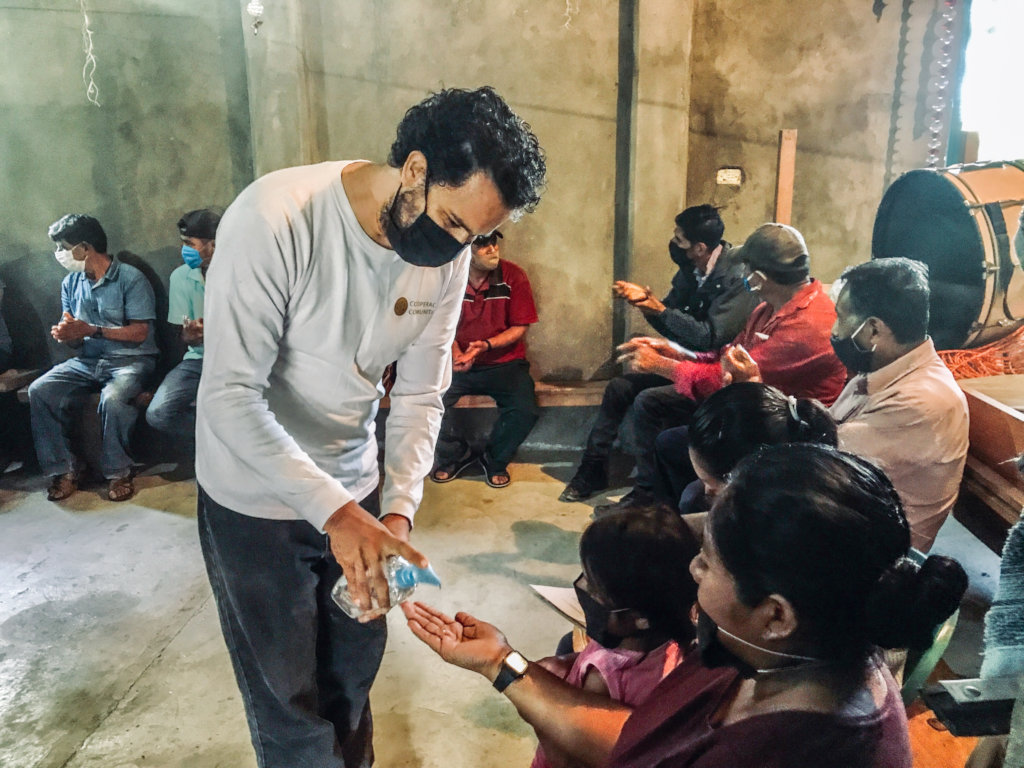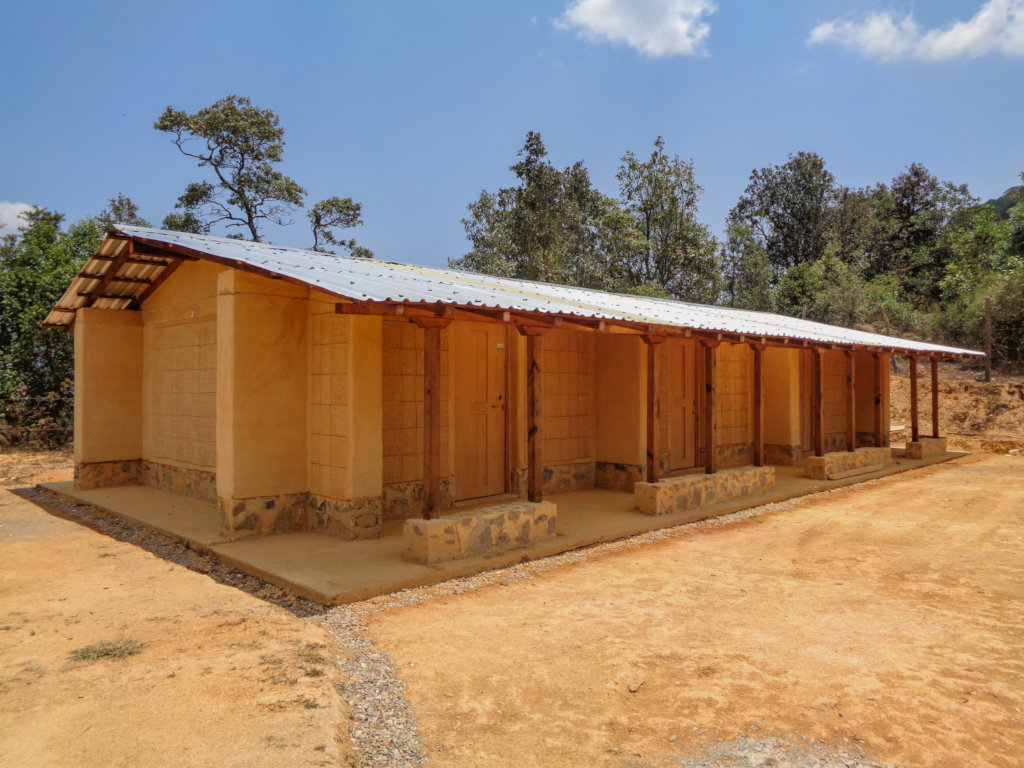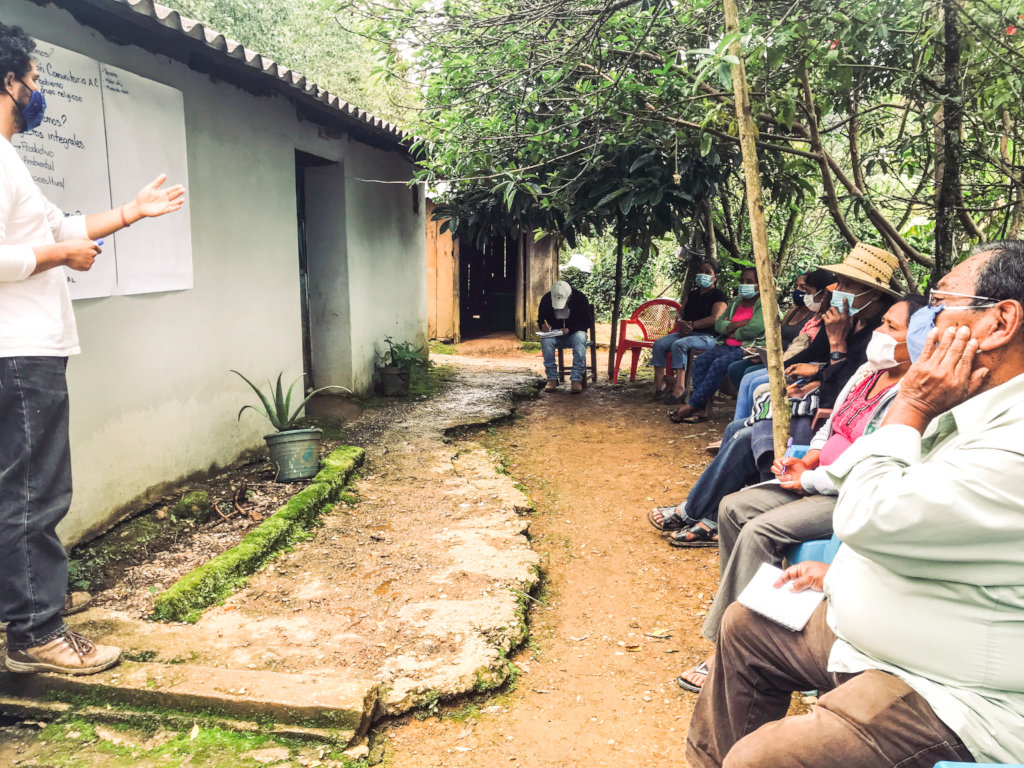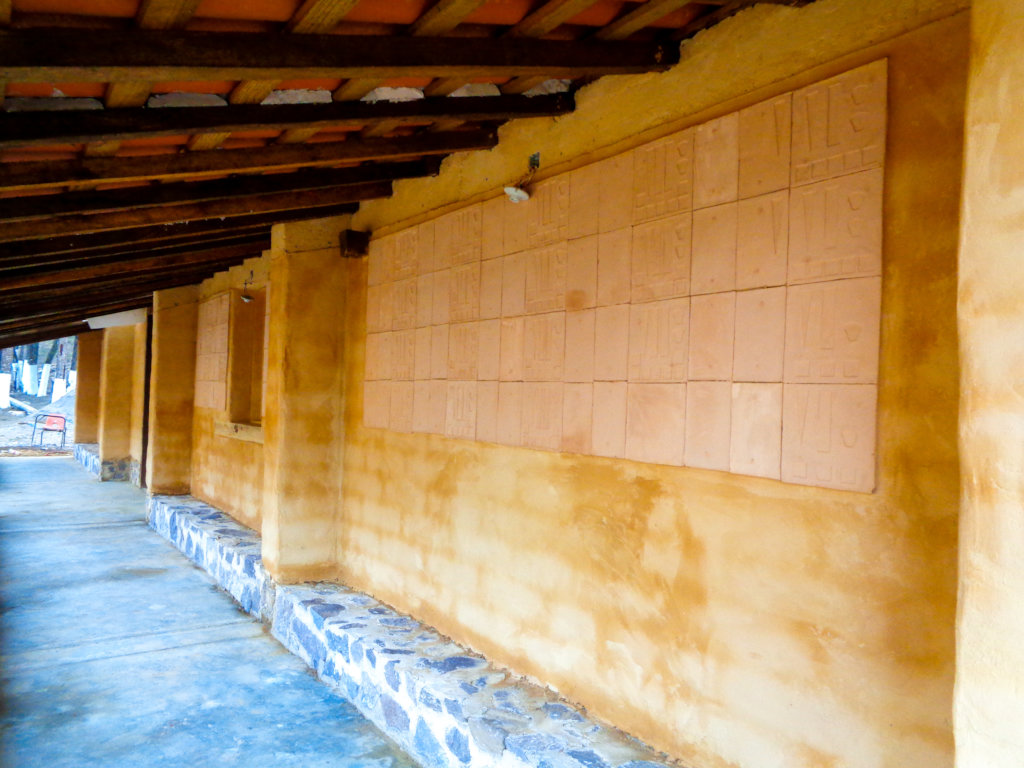By Cooperacion Comunitaria A. C. | Responsible of communication
We continue to implement strategies to face the challenges posed by the health emergency and the new reality. Our team has had to creatively search for alternatives to achieve the objectives, such as strengthening communication strategies among the different actors and groups with whom we collaborate. In this sense, the work of local promoters and the use of technology have been indispensable for the exchange of knowledge.
Likewise, we have gradually returned to working only in populations where the risk of contagion has decreased, while at the same time we have adopted safety measures, such as outdoor activities, social distance and tool sanitation.
Environmental Classroom at the Intercultural University of the State of Guerrero (UIEG)
Once all the construction processes for the Environmental Classroom at the Intercultural University of the State of Guerrero (UIEG) were completed, we can count 39 students who received training on the reinforced adobe housing model, putting it into practice during the self-construction of the classroom.
In this context, an important relationship that we have built over the years is with the UIEG, which in turn has allowed us to expand our immersion in the region. Therefore, we have seen the need to continue strengthening this relationship and to generate a curricular plan for the formation of students.
Likewise, up to now this is the largest community space (139 m2) carried out by Cooperacion Comunitaria in the region and the first to use clay tiles for the roof. The Environmental Classroom, besides being for community use, being in an educational center becomes a construction that promotes the use of tile as a solution made with local materials as opposed to galvanized sheet, a common material used in the region.
As part of the Environmental Classroom project, we carried out with UIEG students the Participatory Design of dry toilets (non-flush toilet) workshop in order to identify the elements that make up this ecotechnology. From a comparison between the linear drainage system and the closed-cycle system that maintains a dry toilet, together with the students, we reflected on the advantages and disadvantages that we found between the two systems.
This allowed us to identify the malfunctioning of the municipality's drainage system and the contamination of the region's rivers. Likewise, this workshop preceded the self-construction of dry toilets by the students, which was postponed by the sanitary emergency derived from the COVID-19.
The process of building the Environmental Classroom has been hard and has represented a lot of commitment from students and teachers. With respect to the above, it is likely that the construction stage for the eco-techniques of the Environmental Classroom, such as the demonstrative kitchen and dry toilets, will be completed by the first semester of 2021 in order to improve the pedagogical process. However, we consider it pertinent to carry out in the following months the participatory design with the students, in order to be able to elaborate the architectural project by the Community Cooperation.
Indigenous Preschool Education Center (CEPI) in the communities of Ojo de Agua and La Cienega
During this period, 11 teachers from the Indigenous Preschool Education Centers (CEPI) were informed and sensitized with workshops on Environmental Risk Management and Elaboration of an advocacy plan on Social Production of Habitat on the exercise of the right to adequate housing. This allowed us to deepen the way in which CC collaborates with the communities within the framework of Social Production of Habitat (PyGSH by its Spanish acronym).
It is important to mention that the teachers represent 11 communities where they practice their profession and where in a direct way from an assembly of parents, they will transmit the reflections and learning obtained during the process of construction of the CEPI.
After the conclusion of the work in the Indigenous Preschool Education Center (CEPI) in the community of Ojo de Agua, teachers from the school zone who participated in the production and management of this space were interested in carrying out a process of self-construction of reinforced adobe housing in their communities, within the framework of Social Production of Habitat.
For this reason, during the last few months we visited the communities of Unión de las Peras, Ojo de Agua, La Soledad, and La Cienega, with the intention of making the first approach to the interested inhabitants and presenting them the work methodology of Community Cooperation.
The importance of this first approach to the four communities made it possible to learn from the habitants about their interest in becoming involved in a training, participatory and collaborative process. For now, it has been decided to begin the process of self-construction of reinforced adobe houses in the communities of Ojo de Agua and La Soledad. During the month of October, the necessary diagnostics will be carried out to begin a new process with these communities with the intention of being able to build 26 houses during the first semester of 2021.
Due to the fact that the traffic light of epidemiological risk in the region is in yellow, we continue with the sanitary safety measures recommended by the Secretary of Health.
Wood-saving stoves in the community of La Cienega
We have started the collaboration with 25 women from the community of La Cienega, interested in improving the living conditions of their kitchens as well as their stoves. During the months of November and December we will be carrying out the necessary diagnostics that will allow us to advance in the exercise of a participatory design of a wood-saving stove and the model of kitchen adapted to the region.
Kitchen-dining room for Amuzgos childrens' house
After the beginning of two stages of the constructive process - elaboration of adobes for the building and the foundation - of the kitchen-dining room of the bilingual intercultural primary school "W'aa Yocanch'u Ncue" (The house of the amuzgos children in ñomndaa) in Xochistlahuaca, we had to pause the process in person due to the contingency derived from the COVID-19 and at the request of the school community since until the last days of May 2020 the contagion began in the region.
However, we continued to work remotely with the parent committee and the school teachers in order to resume constructive and formative activities during the month of November.
Links:
Project reports on GlobalGiving are posted directly to globalgiving.org by Project Leaders as they are completed, generally every 3-4 months. To protect the integrity of these documents, GlobalGiving does not alter them; therefore you may find some language or formatting issues.
If you donate to this project or have donated to this project, you can receive an email when this project posts a report. You can also subscribe for reports without donating.
Support this important cause by creating a personalized fundraising page.
Start a Fundraiser


